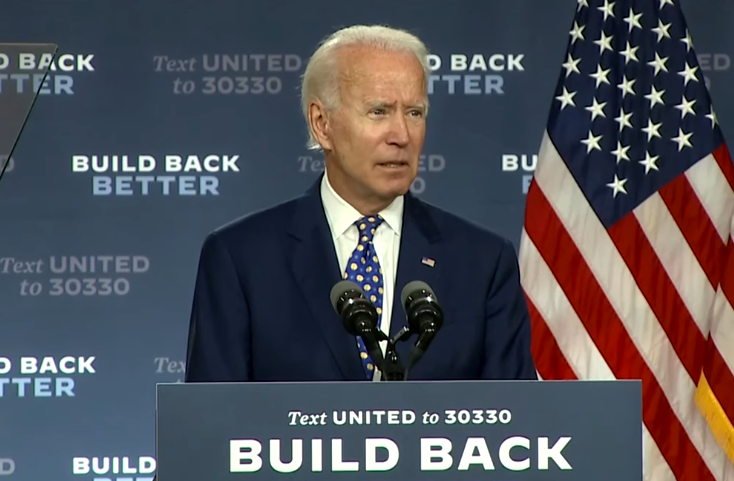It is former Vice President Joe Biden, and not President Donald Trump, who has a political problem due to ongoing riots in the aftermath of the death of George Floyd as public backlash against the political left has begun seeping into public attitudes concerning the race for president in 2020.
On July 28, as attention was focused on attempts by radical leftist mobs led by Antifa to burn a federal courthouse in Portland, Oreg. to the ground, Biden issued a weak statement unbelievably blaming President Donald Trump and federal law enforcement for the riots.
Biden said, “They brutally attack peaceful protesters… Of course, the U.S. government has the right and the duty to protect federal property. The Obama-Biden administration has protected federal property across the country without resorting to these blatant tactics — and without trying to stoke the fires of division in this country.”
But nobody’s buying it, as the American people are more likely to blame liberal Democratic city mayors for encouraging the violence with lax police presence.
A July 29-30 Rasmussen Reports poll found that 50 percent of likely voters believe political leaders in major cities like Portland and Seattle are facilitating violent protests by limiting police response. That includes 72 percent of Republicans, 33 percent of Democrats and 48 percent of unaffiliated voters who think Democrats are allowing the urban violence to spread.
Only 31 percent of all voters disagreed. 19 percent were unsure.
That, as President Trump reached 51 percent approval in the Rasmussen tracking poll on Aug. 3.
Clearly, as the civil unrest continues, and Biden waffles on whether he favors the riots or not, it favors Trump politically as he ramps up his law and order messaging on the campaign trail and exposes deep divisions among Democrats.
Similarly, in June, Biden wanted to have it both ways on defunding the police, saying he didn’t support and then in the same breath outlining the very criteria under which he would cut police funding. Biden told CBS News in an interview: “No, I don’t support defunding the police. I support conditioning federal aid to police based on whether or not they meet certain basic standards of decency and honorableness and … are able to demonstrate they can protect the community.”
So, Biden wouldn’t defund the police unless they were not decent and honorable and could adequately demonstrate they can protect the community, in his opinion. Thanks for clearing that up.
In June, an ABC News/Ipsos poll found 64 percent of Americans reject the idea of defunding the police, including 91 percent of Republicans, 45 percent of Democrats, 43 percent of blacks, 58 percent of Hispanics and 74 percent of whites.
If anything the numbers have only grown since then. A July Pew poll found 73 percent say it should either remain the same or increase, including 42 percent say police spending should remain the same and 31 percent say it should be increased. Among those who say it should be increased, 11 percent say it should be increased a lot and 20 percent say it should be increased a little.
Only 25 percent of Americans support cutting spending for local police departments in the Pew poll, with just 12 percent saying it should be decreased a lot and another 14 percent saying it should be reduced a little.
In response, Trump is taking a page from Richard Nixon, when the rioters and violent protesters helped propel him take the White House in 1968 and further cemented what he dubbed the “silent majority” in his 49-state rout of George McGovern and Democrats in 1972. Then, as now, Republicans benefited from a radical left that had overtaken the Democratic Party via the anti-war movement that could neither be embraced nor rejected.
And Biden seems intent on repeating this folly. On one hand, he needs the radical base of his party. But by failing to fully reject the political violence in the streets in his name—and instead blaming law enforcement and threatening to defund the police—he could lose moderates that he needs to cement a majority.
Make no mistake, the national backlash against the left has already begun—and it could be President Trump who rides that wave to reelection in November.
Robert Romano is the Vice President of Public Policy at Americans for Limited Government.







